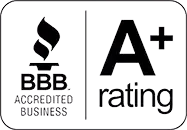Are HOA fees tax deductible? Many homeowners and real estate investors critically consider this question. They look into their financial duties and seek tax savings. HOA fees are common in residential communities. They pay for many services that help the community. This includes maintaining common areas, landscaping, security, and recreational facilities. These fees help keep the community desirable and well-maintained. They can also greatly affect your taxes.
HOA fee deductibility on your tax return is complex. It depends on many factors, like your property’s nature and use. This article explains how HOA fees and tax deductions interact. Are you a homeowner wondering about deductions for your home? Or an investor interested in rental property implications? Understanding HOA fees in your tax scenario is key. I will dive into the details. My goal is to give you a clear view. I’ll show when and how these fees could affect your taxes.
General tax deduction rules
Understanding the broader framework of tax deductions in the United States is essential for homeowners and real estate investors alike. The Internal Revenue Service (IRS) has established guidelines that outline what expenses can be deducted from your taxable income, potentially lowering the amount of tax you owe. Essentially, tax deductions reduce your taxable income, translating into tax savings. However, not all expenses associated with owning property qualify for these deductions.
What qualifies as a tax deductible expense?
Generally, to be considered tax deductible, an expense must be deemed both necessary and ordinary. In the context of real estate, this means the expense must be common and accepted in the field of real estate and directly related to the production of rental income or the maintenance of the property. For homeowners, the scope of deductible expenses is more limited, primarily focusing on mortgage interest and property taxes.
Personal vs. investment property expenses:
- Personal property expenses: For your primary residence, the IRS allows deductions for mortgage interest and property taxes. Other homeowner expenses, including utility costs, home repairs, and HOA fees, typically do not qualify for tax deductions. However, there are exceptions, such as if a portion of your home is used for business purposes.
- Investment property expenses: If you own property that you rent out, the IRS treats the expenses associated with this property differently. In this case, you can deduct the cost of maintaining and managing the property. Including property management fees, maintenance costs, and yes, HOA fees. This is because these expenses are considered necessary for the generation of rental income.
Documentation and reporting
For both personal and investment properties, meticulous record-keeping is paramount. Keeping detailed records of all expenses, including receipts and invoices, is essential for substantiating deductions in case of an IRS audit. When filing your tax return, you will report your deductible expenses on Schedule A for personal deductions and Schedule E for rental property deductions. Understanding these general tax rules provides a foundation for assessing the deductibility of specific expenses, such as HOA fees.
Are HOA fees deductible for personal residences?
The Internal Revenue Service (IRS) provides clear guidelines on what expenses homeowners can deduct on their tax returns. Primarily, deductions for personal residences are limited to mortgage interest and property taxes. Unfortunately, for most homeowners, HOA fees do not qualify as a tax-deductible expense. This is because the IRS categorizes these fees as personal living expenses, similar to utility costs or home insurance premiums, which are also not deductible.
The reason HOA fees are not deductible from taxes for personal residences lies in the nature of the expenses they cover. Since these fees are used to maintain and enhance communal living areas rather than directly improving or maintaining the homeowner’s private dwelling, they are considered non-deductible personal expenses. The IRS’s stance is that since these expenses do not directly contribute to the property’s value or generate income, they cannot be deducted.
Exceptions to consider
While HOA fees for personal residences are generally not tax deductible, there are specific scenarios where homeowners might be able to claim a deduction:
- Home Office Deduction: Homeowners who use a portion of their home exclusively for business purposes may qualify for a home office deduction. If you meet the IRS requirements for this deduction, a proportional share of your HOA fees related to the business use of your home could be deductible.
- Rental Activity: If you rent out part of your primary residence for part of the year, a portion of your HOA fees attributable to the rented space during the rental period might be deductible as a rental expense.
Are HOA fees deductible for rental or investment properties?
For real estate investors and landlords, the tax treatment of HOA fees takes on a different perspective. Unlike the non-deductible status of these fees for personal residences, HOA fees paid for rental or investment properties can often be deducted. This differentiation is rooted in the IRS’s treatment of expenses associated with generating rental income.
Special considerations and exceptions
While the basic guidelines on HOA fee deductibility are straightforward, certain scenarios introduce complexities. These exceptions can influence tax deductions and are important for both homeowners and investors to recognize.
Properties held for sale
For real estate developers or house flippers, HOA fees might be considered inventory costs, affecting tax treatment differently than typical residential or rental properties.
Disaster-related assessments
Assessments for repairs after natural disasters might qualify for special deduction treatments under casualty losses, depending on IRS regulations and the specifics of the situation.
Energy-efficient improvements
HOA assessments for communal energy-efficient installations may offer tax advantages, such as energy credits or deductions, highlighting an area where homeowners can potentially recoup some costs.
Legal considerations
Legal and litigation costs within HOA fees often don’t qualify for direct deductions. However, if they relate to maintaining or improving the income-producing potential of a rental property, exceptions might apply.
Given the intricate nature of these exceptions, consulting with a tax professional is recommended to navigate the specific details and potential tax benefits related to your property and HOA fees. This approach ensures compliance with tax laws while maximizing potential deductions.
In conclusion
Navigating the tax implications of HOA fees requires a solid understanding of IRS guidelines and a strategic approach to your property-related finances. While HOA fees for personal residences generally aren’t tax-deductible, exceptions and opportunities exist, especially for rental or investment properties. By keeping meticulous records, consulting with tax professionals, and staying informed on tax law changes, you can maximize your tax benefits and ensure compliance.
Whether you’re a homeowner or an investor, understanding these principles can lead to significant financial advantages and a more favorable tax situation. Remember, every dollar saved on taxes through diligent planning and legitimate deductions can contribute to your property’s overall financial performance and your peace of mind as a property owner.


